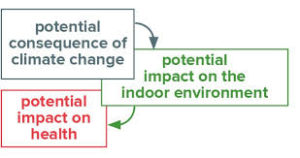The Earth’s system is a complex set of chemical, physical and biological interactions, made even more complicated by the various activities of human society. And since it’s a closed one, the impacts are almost interchangeable.
A recent study by the Harvard University (in collaboration with the University of Birmingham, the University of Leicester and University College London) has found that the highest rates of deaths from fossil fuels like coal, petrol, diesel etc are from India and China(2 of the top 3 most Carbon emitters of the World).
Not surprisingly, an estimated 10 lakh deaths each year and around 9.80 lakhs estimated preterm births are attributed to air pollution from fossil fuel in India, according to a report.
3,50,000 new cases of child asthma each year are also linked to NO2 (nitrogen dioxide), a considerable byproduct of fossil fuel combustion.
Another report by Greenpeace SE Asia shows the global cost of air pollution from fossil fuels to be around 3.3%($2.9 trillion) of the world’s annual GDP. For India, these losses specifically mount to whopping 5.4% of its GDP.
“Air pollution is a threat to our health and our economies. Every year, air pollution from fossil fuels takes millions of lives, increases our risk of stroke, lung cancer and asthma, and costs us trillions of dollars. But this is a problem that we know how to solve, by transitioning to renewable energy sources, phasing out diesel and petrol cars, and building public transport,” the report explains.
India needs to reduce its emissions to below 4.5 Gigatonne of equivalent carbon dioxide by 2030 as our NDC for Paris Climate Action. It also aims at 40 per cent non-fossil-based power capacity by 2030. We don’t lack on policies rather on its imperatives.
While we prepare ourselves for renewable energy capacity building we should also be reducing our significant dependence on thermal power plants(India produces 73 per cent of its electricity from coal – one of the highest rates in the G20 countries).
UNEP report also notes that coal fired power plants in India have repeatedly missed the emission deadlines, inherently set by the Ministry of Environment.
Also low-carbon fuels accounted for less than 6 per-cent of the fuel mix being used altogether. Whereas, they need to increase usage of these fuels roughly ten times by 2050 to keep global warming below 1.5°C in accordance with IPCC.
There is an interesting finding if we tend to compare the two reports at hand and difference of few years. In 2018, more than 8.7 million people around the globe died from fossil fuel pollution, the report estimates.
While the previous research “Global Burden of Disease” estimates around 4.2 million related deaths.
Of this new data, India has almost 2.46 million deaths. In India, Bengal had the third highest number of fossil fuel pollution-driven annual deaths in 2018, at 2.8 lakh, after Uttar Pradesh and Bihar. Overall, India has just under 2.5 million annual deaths, which is over 30.7 per cent of the total deaths in the country.
This infers that air pollution arising from burning fossil fuels was responsible for about one in five deaths worldwide. In India, this accounts to almost five deaths every minute.
Hence it is our utmost necessity to guard up our defence systems to ensure our lesser interventions in Nature and eliminate our functions those denigrate our surroundings continuously.


